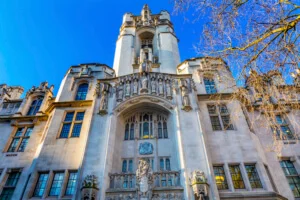A Guide to Asset Protection Trusts

Contact
Table of Contents
One good reason to place your assets into a trust is to protect family wealth without fearing for its future. Trusts for asset protection can protect your assets from creditors and other claims and are an effective way to ensure that wealth stays in the hands of those you intend.
What is an asset protection trust?
An asset protection trust is a type of trust that is set up during your lifetime, but the assets in the trust are distributed to the beneficiaries after you die. Property, investments and other assets that are placed into the trust stop being part of your legal ownership, and that keeps them safe and out of reach from creditors and other claimants.
What is a family asset protection trust?
This is a type of asset protection trust used to hold family assets that are to be preserved for future generations, helping to manage, control, and protect the family wealth.
How do asset protection trusts work?
Like all trusts, asset protection trusts work by ring fencing assets and placing them in the trust container for the benefit of the trust’s beneficiaries. Unlike some other trusts, you can continue to use the assets prior to death, including living in the family home. When you die, the trust assets are passed to the beneficiaries according to the trust’s conditions.
Why should I set up an asset protection trust?
The main reason to set up an asset protection trust is to ensure that the family’s financial security is not eroded by unexpected changes in circumstances. You probably don’t expect to go bankrupt but, if you did, then your assets could be used to pay debts. In complex family structures, there’s also the risk of sideways disinheritance. This is where you pass away leaving everything to your partner and your partner remarries, leaving the family wealth to their new family and the children from your first marriage with nothing.
Asset protection funds are also widely touted as a way of protecting the family home from a local authority assessment for care fees. While they can be a helpful tool in residential care fee planning, keeping money away from a local authority means assessment cannot be the sole basis of setting up the trust.
What are the pros and cons of asset protection trusts?
Pros:
- Comprehensive legal protection for the trust assets, protecting them from claims
- Probate is not necessary so the transfer of assets can be dealt with more quickly
- The trust can be structured to minimise inheritance tax liabilities
- You can do what you want with the assets during your lifetime
- Flexibility regarding how assets are managed and distributed
Cons:
- Complex arrangements that require a high level of skill to establish
- Reduces your access to funds and assets in a financial emergency
- They’re not foolproof. The courts and local authorities can reverse any gifts into trusts where the trust is effectively a sham and to defraud creditors or avoid care home fees.
What is the best type of trust for asset protection?
This will depend entirely on your individual situation and what you are hoping to achieve. It is important to work with an experienced trusts lawyer who can take a holistic view of your needs and ensure all legal requirements are met. These trusts involve a lot of thought and careful planning. Our experienced team can help advise you on the best solutions to suit your family and financial circumstances.
How much does an asset protection trust cost?
The cost will depend on the complexity, type and value of the assets you wish to transfer into the trust. For example, conveyancing fees will be payable when transferring property into the trust in addition to the costs of setting up the trust. We offer competitive rates and can explain the cost of setting up an asset trust in more detail – get in touch with us to find out more.
How we can help?
Speak to a specialist trusts lawyer about an asset protection trust. Contact us to get started.
- Call 020 7485 8811, or
- Fill in the contact form below.
Share this article
Contact us today
Call us 020 7485 8811
Email us Send us an email and we’ll get back to you
We'd like to thank all of you for your professionalism in helping us deal with everything for the past 17 months. Even though our choice of law firm at the beginning was random, we're glad we came to you. We're very grateful that you're on our side and fighting for what's rightfully belongs to us! We couldn't have had a better lawyer representing us and we appreciate you more than you can imagine.
With a deep sense of gratitude, I want to thank you all for your diligent and comprehensive contributions and assistance in my legal travails.
I am sure you know how stressful legal proceedings can be for everyday laypersons like myself. Thankfully, you have been a bastion of support and reassurance during these trying months, and I struggle to find the right words to express my sincere gratitude.
Thank you from the bottom of my heart.
A private client team offering a range of services to assist with private client matters including trust and probate services. A friendly approach with a keen eye for detail.
I have been a client of this firm for a number of years and been impressed by particular individuals, the care and thoughtfulness with which they have worked.
An efficient firm which provides an excellent service at highly competitive charging rates.
The team receives a steady flow of instructions from high-net-worth individuals and families on an array of tax planning, wealth preservation, estate and succession planning issues
I think this firm has excellent strength and depth in this area, for both contentious and non-contentious work, and they can hold their own against any other firm.
I have found them to be incredibly knowledgeable and pragmatic in settling claims for their clients.
The contested estates team is strong with talented young solicitors doing good quality work
The nimble team acts for a broad range of high-net-worth individuals and families on a variety of complex estate and trust litigation.
Osbornes has a ‘strong private client department’ and ‘the firm seems to be going from strength to strength’.
Thank you for managing my case, following a complete fiasco before I contacted Osbornes Law. I know that the work involved was rather complicated, possibly frustrating and often time consuming. I was impressed with your current knowledge of the case when we had the first meeting at your office. I regard a face-to-face meeting as imperative in developing positive relationships. Members of your team, such as Alex and Ella were impressive too, with their efficient, friendly manner of working.
I am grateful for your patience, advice and excellent support at a difficult time. Hopefully it won't be necessary to contact you again regarding this matter! I will definitely use Osbornes Law in the future."Jan Atkinson, with her steely, steady, calming presence, instils confidence in the most highly-strung of us clients. With her masterful knowledge of the law, old and new, and its application, Jan can navigate through the most complex of cases to a successful end."
"I find Osbornes’ client-friendly approach welcoming and refreshing"
"A medium-sized London firm dealing with big litigation and doing it extremely well because of a depth of expertise and experience."
My family had the pleasure of Jan Atkinson working with us on the will and probate issues of [my mother's] estate in Camden and Ireland after she passed on last year. Jan and her assistant(s) offered us a fantastic service at a sad time.
"Jan Atkinson stands out for her wide-ranging knowledge and experience of estates; whatever problem you throw at her, she has seen it all before and is able to find a creative and sustainable solution. She has exceptional commitment to her clients and explores every avenue to find the best solution for them"
The team is very caring, experienced and detailed and was clear about the next steps and offered very helpful advice and suggestions
Jan Atkinson has extensive experience in private client matters, which underpins her excellent skills in the contentious probate area. Plus she is strong on international matters
A small but formidable team, punching above its weight. Jan Atkinson is a seasoned pro. Approachable but no push-over
"They are an outstanding firm to work with. They are consistently impressive in their work."
"Elspeth Neilson is very reliable and practical."
"The team frequently deals with cross-border estates for high–net-worth individuals."
"The team were extremely professional in putting my needs first. There was a joined-up approach to catering for the client, and all lawyers involved were briefed and constructive."
"Service prompt and effective. I have absolute confidence in Maggie."
I am happy with the service that I got and would recommend you to other potential clients.
I found Osbornes always very helpful and efficient.
We are very pleased with the services of Osbornes. Highly professional and through with close attention to detail.
I would highly recommend Jan Atkinson in any probate matter and Osbornes Solicitors in any other legal matters.
Jan Atkinson is a very proficient lady whom I would highly recommend to anyone involved in probates.
Thanks for all your work and explaining everything so clearly. For any legal matters in the future I would not hesitate in instructing Osbornes.
We have found your service to date as the most informative we have come across.
Jan Atkinson is confident with a straightforward approach. Her practice covers both contentious and non-contentious matters, including wealth planning and estate administration.
I would like to thank everyone in my case for the excellent job!
Related InsightsVIEW ALL
- 4.6.2025
Supreme Court Confirms ‘No-Profit’ Rule For Fiduciaries
Trustees: Supreme Court confirms ‘no change’ to ‘no-profit’ rule for fiduciaries The contested probate and trusts team at Osbornes Law...
Read more - 15.5.2025
Family Conflicts Over Contested Wills
Inheritance disputes: when loved ones become opponents over an unclear will The contested wills and probate team at Osbornes Law...
Read more - 9.12.2024
Executors’ and Administrators’ Duties
Introduction When someone dies, others need to take on the formal responsibility for dealing with the deceased’s estate. If...
Read more - 9.12.2024
What To Do When Someone Dies
When a loved one dies, getting to grips with what you need to do can seem bewildering. The first question...
Read more - 6.11.2024
High Court Validates Donation in Will Dispute
High Court validates gift made during Covid lockdown in Will Dispute In what may be one of the first covid...
Read more - 5.11.2024
Dementia: Protecting The Interests Of Each Spouse
Protecting Loved Ones with Dementia Dementia is a cruel disease, slowly robbing individuals of their character and their abilities. The...
Read more - 12.7.2024
Probate Mediation
Why choose mediation for contested probate? At Osbornes, we understand that probate litigation is often highly emotive. Unfortunately, there is...
Read more - 12.7.2024
Is A Handwritten Will Legal?
Is a handwritten will legal? Is a question we often hear, especially when time is of the essence, and putting...
Read more - 25.4.2024
A Guide to Will Trusts
What is a trust in a will ? Setting up a trust in your will can protect assets for your loved...
Read more - 25.4.2024
What is a Mirror Will?
Mirror wills are mirror images of each other and practically the same in every way. They suit couples, married or...
Read more - 23.4.2024
A Guide to Life Interest Trusts
In today’s complex families, protecting assets for your children while ensuring that a surviving spouse can still enjoy them...
Read more - 23.4.2024
Discretionary Trusts
What is a discretionary trust? With a discretionary trust, there is no automatic right for beneficiaries to receive funds from...
Read more - 23.4.2024
Disputes Between Executors and Beneficiaries
What are your rights? When a loved one dies, their beneficiaries understandably want to settle their affairs and receive their...
Read more - 23.4.2024
What Rights Does a Beneficiary of a Will...
As a beneficiary of a will, it’s a mistake to sit idly by and wait for your inheritance. A...
Read more - 22.4.2024
5 Things You Should Never Put in a Will
When it comes to writing a will, you want to make sure that your wishes are known and that the...
Read more - 22.3.2024
Forged Wills
Will fraud and forged wills are increasingly common. If the contents of a will comes as a surprise, then one...
Read more - 14.2.2024
What is Proprietary Estoppel?
What is Estoppel? In general terms, estoppels operate where one party has acted on the basis of a statement made...
Read more - 14.2.2024
Duties of Trustees
When setting up or running a trust it’s important to know what the trustees duties are. Trustees are key...
Read more - 3.11.2023
Deed of Variation: Making a Change to an...
What is a deed of variation? A deed of variation is a legal document which can be used to alter...
Read more - 31.10.2023
Constructive Trusts
Property rights are not always clear-cut. Sometimes, a person who does not legally own a property could be entitled to...
Read more - 17.9.2023
What is a Codicil to a Will?
Codicil to a will Life has a habit of changing and your will may need to change with it. A...
Read more - 31.8.2023
What Happens if Someone has Dementia and No...
Can you get Power of Attorney for someone with dementia? It’s a sad reality in an ageing population that...
Read more - 31.8.2023
Can a Lasting Power of Attorney Be Overridden?
Dramatic rise in people making a Power of Attorney The number of people recognising the importance of making a Lasting...
Read more - 26.7.2023
Wills Disputes: The Duty To Account Is Not...
Beneficiaries frequently ask us whether trustees or personal representatives can be required to provide a financial account. Their request may...
Read more





























